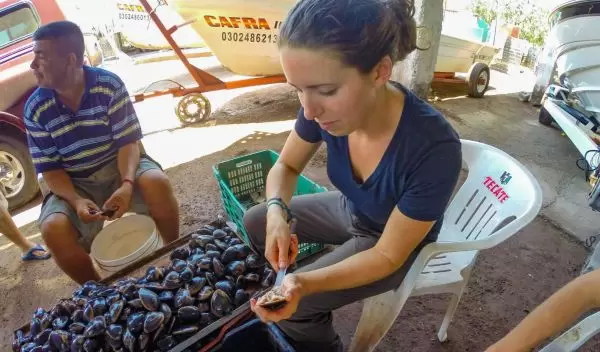
Potential for fisheries co-management shaped by interplay between formal, informal institutions
Integrating local norms and fishers' knowledge into regulations helps increase trust in management institutions, and can make it easier for co-management to work.
Those were the findings of U.S. National Science Foundation-funded research by University of Maine researchers Kara Pellowe and Heather Leslie. The scientists looked at the interplay between formal and informal institutions and implications for the co-management potential of a small-scale Mexican fishery.
The journal Marine Policy published their results.
Pellowe and Leslie contend that conflicts between formal institutions, such as government agencies, and informal institutions, such as unwritten agreements among families and friends, can represent a significant barrier to effective fisheries management.
They examined the potential for co-management, where power and decision-making are shared by fisheries managers and fishers, in a fishery that is currently managed through top-down control. They concluded that integrating local norms and knowledge into formal regulations, along with broadened community participation, are necessary precursors to co-management. Doing so would result in more successful fisheries management.
Pellowe regularly traveled to Baja California Sur, Mexico, to work closely with fishers, managers and stakeholders in the Mexican chocolate clam (Megapitaria squalida) fishery in Loreto Bay National Park, on the Baja peninsula.
Like the Maine lobster, the Mexican chocolate clam is a culturally and economically important species, providing food, income and cultural value to many communities in Baja.
Ensuring the sustainable management of the species requires the trust and cooperation of fishers. Integrating the rich, local ecological knowledge of fishers into formal regulations can increase sustainability and lead to management that is better able to adapt to environmental change.
"This is a wonderful example of unveiling the social factors that contribute to complex ecological systems and their feedbacks, which in this case influence fisheries production," said Betsy Von Holle, a program director in the National Science Foundation's Division of Environmental Biology.


